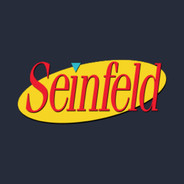-
Posts
2445 -
Joined
-
Last visited
-
Days Won
32 -
Steam ID
76561198025604580 -
Gametracker
Walter the Assaulter -
Player Profile
View
Walter the Assaulter's Achievements
180
Reputation
1
Community Answers
Single Status Update
See all updates by Walter the Assaulter
-
Garry's Mod (often abbreviated as GMod) is a sandbox game developed by Facepunch Studios and published by Valve. The game was created by Garry Newman as a mod for Valve's Source game engine and released in December 2004, before being expanded into a standalone release and published by Valve in November 2006. Ports of the original Microsoft Windows version for Mac OS X and Linux followed in September 2010 and June 2013, respectively. The base game mode of Garry's Mod has no set objectives and provides the player with a world to freely manipulate. Other game modes, notably Trouble in Terrorist Town, are created by other developers as mods and are installed separately, by means such as the Steam Workshop. As of January 2016, Garry's Mod has sold 10 million copies.
Gameplay
Garry's Mod is a physics-based sandbox game and its base game mode has no set objectives. The player is able to spawn non-player characters, ragdolls, and props, and interact with them by various means. Using the physics gun, ragdolls and props can be picked up, rotated, and frozen in place. The tool gun is a multi-purpose item for various tasks, such as welding and constraining props together, and altering the facial expressions of ragdolls.
User-created content
Garry's Mod includes the functionality to modify the game by developing scripts written in the Lua programming language. Notable mods include Spacebuild, Wiremod, Elevator: Source, DarkRP, Prop Hunt, and Trouble in Terrorist Town. Specialised servers, known as Fretta servers, rotate between custom game modes every fifteen minutes. Garry's Mod version 12 introduced the "Toybox" section, through which the player could browse and install user-created mods. In Garry's Mod version 13, this was mostly replaced with support for the Steam Workshop.
Fretta Contest
In late 2009, Facepunch launched the "Fretta Contest", a competition in which people were to develop Garry's Mod game modes using the proprietary Fretta programming framework, with the winner to be natively added to the game. The winner of this contest was Trouble in Terrorist Town (TTT), wherefore it was added to the game in July 2010, alongside another Fretta game, Dogfight: Arcade Assault. TTT assigns players to three groups: Traitors, Detectives, and Innocents. Detectives are known to all players, whereas Traitors are only known to other Traitors and otherwise appear as Innocents. While Traitors attempt to eliminate all other players, Innocents and Detectives need to co-operate to identify and eliminate all Traitors. To do the latter, Detectives are given special equipment, such as DNA scanners that can trace a dead player's killer.
GMod Tower
In July 2009, four developers working under the name "PixelTail Games" opened a Garry's Mod server called GMod Tower. GMod Tower was a network of servers, designed as a social media platform for users to play minigames with friends and socialise in a hub area. Within hours of the server's opening, the website for GMod Tower reached two million views. GMod Tower temporarily shut down between January 2012 and April that year. PixelTail later expanded GMod Tower into Tower Unite, a standalone game. When the game launched into early access in April 2016, GMod Tower was shut down permanently.
Machinima
Garry's Mod has also been used as the basis for user-made machinima. One of the more notable examples is Half-Life: Full-Life Consequences, a machinima of a poorly-written fanfic in the Half-Life universe written in 2008 by a user named Squirrelking, whom The Verge named the "Cormac McCarthy of terrible fan fiction". YouTube user Djy1991 used Garry's Mod to animate the fanfic, using literal interpretation of some of the work's typographical errors and awkward grammar.
Development and release
Garry's Mod was created by the video game programmer Garry Newman. He started developing games under the studio name Facepunch Studios after dropping out of college, at the time out of a room in his parents' house. He did this as a hobby, simultaneous to his occupation as a PHP programmer for a dating website, from which he was later fired when he launched his own such website. His first game was Facewound, described as "Mario with guns", while Garry's Mod later came about as a side-project in the form of a mod for the Source game engine and principally the game Half-Life 2. Newman soon found more enjoyment in developing Garry's Mod than in developing Facewound, so development on Facewound was mostly halted (and put on indefinite hiatus in 2004) to focus on Garry's Mod. The first iteration of the mod, version 1, was released on 24 December 2004. Initial feedback was polarised, with some criticising the mod for its similarity to an existing mod, JBMod. However, the increasing positive reception led Newman to continue development. Through 2004 and 2005, Newman released several updated versions of Garry's Mod, adding new features along the way and culminating in version 9.0.4 on 27 November 2005. Out of Newman's one-man operation grew a team of multiple people for a remake of the mod as a standalone game.Valve, the developers of Source, contacted Newman to suggest a commercial, standalone release of the mod through their digital distribution service Steam, which Newman initially rejected. Valve and Facepunch later struck a publishing agreement wherein Valve would release Garry's Mod onto Steam at a price of US$10, while the two companies would equally share profits. The last free version of Garry's Mod remained available for download, rechristened as the demo to the retail game. The standalone game was released on 29 November 2006. Despite the game no longer being a mod, Valve and Facepunch stuck with the "Garry's Mod" name, which Newman later cited as a mistake, stating that he should have called it "Sandbox" instead. Because Garry's Mod still required a separate Source-based game to function properly, a bundle including Garry's Mod and Valve's Counter-Strike: Source was also released. A port of the Microsoft Windows version for Mac OS X was released on 23 September 2010. Support for Kinect, a full-body motion tracking peripheral, was added to the Windows version in December 2012. When Garry's Mod was moved over to Valve's SteamPipe content delivery system, with the move completed on 5 June 2013, an experimental Linux client was also introduced.
Reception
In 2005, Garry's Mod was awarded "PC Mod of the Year" by GameSpy. In 2017, Brendan Caldwell of Rock, Paper, Shotgun described the game as a "must-own sandbox game", and PCGamesN included it in its 2019 list of "best sandbox games on PC".
Commercial performance
In its first day, Garry's Mod sold 5,729 copies, and 312,541 by early December 2008. Further sales milestones were reached with 770,628 copies sold by late October 2010, 1 million by July 2011, 1.4 million by March 2012, 3.5 million by July 2013, 6 million by September 2014, and 10 million by January 2016. By December 2019, Newman estimated that the game sold about 1.5 million copies annually, and stated that it had achieved over 15 million sales in total.Sales of the game attributed for revenues of $3 million by December 2008, $22 million by March 2013, and $30 million by February 2014. The game's success allowed Facepunch to grow further, eventually branching out into other games, such as Rust.
Successor
Newman stated in September 2015 that a sequel to Garry's Mod was in early development, with Newman looking to include virtual reality content and chose a name other than "Garry's Mod 2" for it. Newman later announced Sandbox (stylized as S&box), a sandbox game using Unreal Engine 4, in September 2017 as a potential spiritual successor to Garry's Mod. In December 2019, Newman announced that development on the game had been paused. He resumed development in March 2020, announcing that Sandbox would be shifted to the Source 2 engine.
See also
List of video games derived from mods
References
Further reading
Totilo, Stephen (29 October 2010). "Meet Garry, The Guy Who Re-Made How We Re-Make PC Games". Kotaku.

.png.dd2b432ae1812ea1fd2f38a267de1517.png)






.thumb.jpeg.41d3a27149507dc5b973d00645163755.jpeg)






